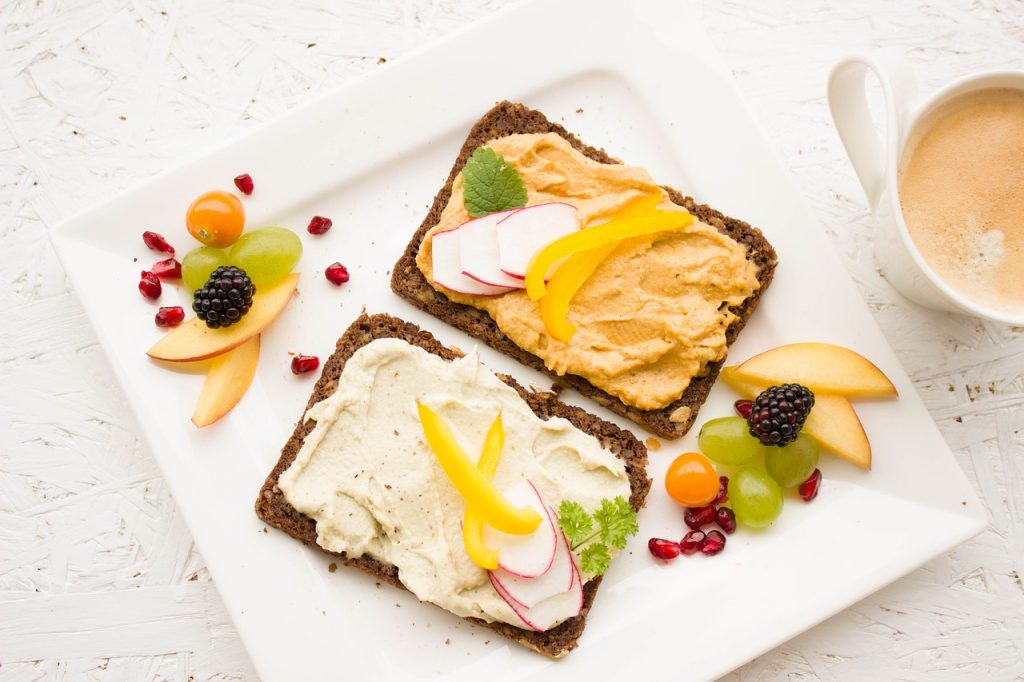Looking to achieve a healthier lifestyle? Look no further than incorporating whole foods into your diet. By opting for wholesome, natural foods that are minimally processed, you can kickstart your journey towards a healthier you. Say goodbye to those restrictive diets and hello to a sustainable and nourishing approach. In this article, we will explore the benefits of whole foods and how they can help you detoxify your body naturally. Get ready to revolutionize your eating habits and feel the rejuvenating effects of a whole foods diet.
Benefits of Whole Foods
Nutritional Value of Whole Foods
Whole foods are packed with essential nutrients that are beneficial for overall health and wellbeing. Unlike processed foods, which often have added sugars, unhealthy fats, and artificial ingredients, whole foods are in their natural state and provide a wide range of vitamins and minerals. By incorporating whole foods into your diet, you can ensure that you are getting the nutrients your body needs to thrive.
Higher Fiber Content
One of the major benefits of whole foods is their high fiber content. Fiber is crucial for a healthy digestive system and can help prevent constipation, promote regular bowel movements, and maintain a healthy weight. Whole foods such as fruits, vegetables, whole grains, and legumes are excellent sources of fiber and can help you feel fuller for longer periods, reducing the likelihood of overeating.
Lower in Added Sugars
Whole foods are naturally low in added sugars, which are often found in processed foods. Consuming excessive amounts of added sugars can contribute to weight gain, increase the risk of chronic diseases like diabetes, and negatively impact overall health. By choosing whole foods, you can reduce your intake of added sugars and opt for a healthier and more balanced diet.
Rich in Antioxidants
Antioxidants are compounds that help protect the body from harmful free radicals, which can contribute to chronic diseases and accelerate the aging process. Whole foods, particularly fruits and vegetables, are abundant in antioxidants. By incorporating these antioxidant-rich foods into your diet, you can support your body’s natural defense system and promote optimal health.
Whole Foods for a Balanced Diet
Include a Variety of Fruits and Vegetables
Fruits and vegetables are essential components of a balanced diet. They are packed with vitamins, minerals, and fiber, while being low in calories. Aim to include a variety of colors in your fruit and vegetable choices to ensure you’re getting a diverse range of nutrients. Whether it’s leafy greens, vibrant berries, or crunchy carrots, incorporating a wide array of fruits and vegetables into your meals will provide your body with a rainbow of beneficial nutrients.
Choose Whole Grains
Whole grains like quinoa, brown rice, oats, and whole wheat are rich sources of fiber, vitamins, and minerals. These grains retain their natural nutrients as they haven’t undergone the refining process that removes the bran and germ, unlike refined grains. By choosing whole grains, you can provide your body with sustained energy, promote healthy digestion, and support overall wellbeing.
Incorporate Lean Proteins
Proteins are vital for building and repairing tissues, maintaining muscle mass, and supporting various essential functions in the body. When choosing protein sources, opt for lean options like skinless poultry, fish, legumes, tofu, and nuts. These whole food protein sources are generally lower in unhealthy fats and higher in nutrients than processed protein options.
Include Healthy Fats
Contrary to popular belief, not all fats are bad for you. Healthy fats, such as those found in avocados, nuts, seeds, and olive oil, are important for brain health, hormone production, and absorption of fat-soluble vitamins. Including these healthy fats in your diet can help you feel satisfied, promote heart health, and support overall wellbeing.

Boosting Immunity with Whole Foods
Vitamin C-rich Foods to Support Immune System
Vitamin C is well-known for its immune-boosting properties. Citrus fruits like oranges, grapefruits, and lemons are excellent sources of vitamin C. Additionally, berries, kiwi, peppers, and leafy greens like spinach and kale are rich in this important nutrient. Incorporating these vitamin C-rich foods into your diet can help strengthen your immune system and ward off illnesses.
Include Probiotic-Rich Foods for Gut Health
A healthy gut is essential for overall wellbeing, as it plays a crucial role in digestion, nutrient absorption, and immune function. Probiotic-rich foods, such as yogurt, kefir, sauerkraut, kimchi, and tempeh, contain live beneficial bacteria that promote gut health. By incorporating these foods into your diet, you can support a balanced gut microbiome and strengthen your immune system.
Antioxidant-Rich Foods to Reduce Inflammation
Inflammation is a natural response by the body to protect against injury and infection. However, chronic inflammation can contribute to various diseases. Including antioxidant-rich foods in your diet, such as berries, dark chocolate, green tea, and turmeric, can help reduce inflammation and support overall immune health.
Weight Management and Whole Foods
Incorporate High-Fiber Foods to Control Appetite
High-fiber foods can help control appetite by providing a feeling of fullness and reducing hunger pangs. Foods like whole grains, legumes, fruits, and vegetables should be included in your diet as they are excellent sources of fiber. By incorporating these foods, you can manage your weight more effectively and support a healthy lifestyle.
Replace Processed Snacks with Whole Food Options
When looking to manage your weight, it’s important to make healthier snack choices. Instead of reaching for processed snacks that are often high in unhealthy fats, sugars, and calories, opt for whole food options. Snacks like nuts, seeds, fresh fruit, vegetable sticks with hummus, or Greek yogurt with berries can provide satisfying alternatives that support your weight management goals.
Include Lean Proteins for Satiety
Protein is known for its ability to promote a feeling of fullness and satisfaction. Including lean proteins like chicken, turkey, fish, beans, and tofu in your meals can help you stay full for longer and reduce cravings. By incorporating lean proteins, you can support your weight management efforts while also providing your body with essential nutrients.

Improving Heart Health with Whole Foods
Choose Healthy Fats to Lower Cholesterol
High levels of LDL cholesterol can increase the risk of heart disease. Choosing healthy fats like those found in avocados, olive oil, nuts, and seeds can help lower LDL cholesterol levels. These fats are rich in monounsaturated and polyunsaturated fatty acids, which are known to have heart-healthy benefits.
Include Omega-3 Fatty Acids for Heart Health
Omega-3 fatty acids have been shown to reduce inflammation and support heart health. Fatty fish like salmon, mackerel, trout, and sardines are excellent sources of omega-3 fatty acids. If you follow a plant-based diet, you can still incorporate omega-3s by consuming chia seeds, flaxseeds, and walnuts. By including these whole foods in your diet, you can support a healthy heart and reduce the risk of cardiovascular diseases.
Reduce Sodium Intake for Blood Pressure Control
Excessive sodium intake is linked to high blood pressure, which is a risk factor for heart disease. By reducing your intake of processed and packaged foods, which are often high in sodium, and opting for whole foods instead, you can lower your sodium intake and support healthy blood pressure levels. Whole foods like fruits, vegetables, lean proteins, whole grains, and herbs can be seasoned to enhance flavor without relying on excess sodium.
Whole Foods for Healthy Skin
Include Vitamin E-rich Foods for Skin Health
Vitamin E is a powerful antioxidant that helps protect skin cells from damage caused by free radicals. Including foods rich in vitamin E, such as nuts, seeds, avocado, and spinach, can support healthy skin and promote a youthful complexion. Additionally, vitamin E helps to maintain skin hydration and overall skin health.
Foods Rich in Zinc for Acne Prevention
Zinc is an essential mineral that plays a crucial role in skin health and immunity. It is particularly beneficial for preventing and reducing acne. Foods like oysters, beef, poultry, pumpkin seeds, and legumes are rich sources of zinc. By incorporating these whole foods into your diet, you can promote clear, healthy skin.
Hydrate with Whole Food Sources like Fruits and Vegetables
Proper hydration is essential for maintaining healthy skin. While drinking water is crucial, hydrating from whole food sources like fruits and vegetables is also beneficial. Foods like watermelon, cucumbers, oranges, and strawberries have high water content and can help keep your skin hydrated and radiant.

Energy Boosting with Whole Foods
Include Complex Carbohydrates for Sustained Energy
Complex carbohydrates, found in foods like whole grains, quinoa, sweet potatoes, and legumes, provide a steady release of energy throughout the day. Unlike simple carbohydrates, which cause spikes and crashes in blood sugar levels, complex carbohydrates provide sustained energy and help you stay alert and focused.
Iron-Rich Foods for Combatting Fatigue
Iron is essential for the production of red blood cells, which transport oxygen throughout the body. Iron deficiency can lead to fatigue and low energy levels. Including iron-rich foods like lean meats, spinach, beans, and fortified cereals in your diet can help combat fatigue and support optimal energy levels.
Avoiding Processed Foods for Stable Blood Sugar Levels
Processed foods, especially those high in refined sugars, can cause rapid spikes and drops in blood sugar levels, resulting in energy crashes and cravings. By focusing on whole foods that provide a balance of macronutrients, including fiber, protein, and healthy fats, you can maintain stable blood sugar levels and sustain energy throughout the day.
Detoxification with Whole Foods
Include Detoxifying Foods Like Leafy Greens
Leafy greens like kale, spinach, and chard are natural detoxifiers due to their high nutrient content and chlorophyll. These foods support the liver’s natural detoxification process and help eliminate toxins from the body. Including leafy greens in your diet, whether in salads, smoothies, or cooked dishes, can aid in overall detoxification.
Stay Hydrated with Water and Herbal Teas
Proper hydration is crucial for detoxification. Water helps flush out toxins and waste products from the body. Additionally, herbal teas like dandelion, green tea, ginger, and chamomile can support detoxification processes. By staying hydrated with water and herbal teas, you can aid your body in eliminating toxins effectively.
Incorporate Foods High in Fiber for Colon Cleansing
Fiber plays a vital role in promoting regular bowel movements and preventing constipation. By incorporating whole foods rich in fiber, such as whole grains, fruits, vegetables, and legumes, you can support colon cleansing and facilitate the removal of toxins from your body.

Digestive Health and Whole Foods
Fiber-Rich Foods for Regular Bowel Movements
Digestive health is closely tied to fiber intake. Consuming foods high in fiber, such as whole grains, fruits, vegetables, and legumes, can help regulate bowel movements and prevent constipation. Fiber acts as a natural cleanser for the digestive system, helping to maintain optimal gut health.
Probiotic Foods for Good Gut Bacteria
Probiotic foods contain live beneficial bacteria that help maintain a healthy balance of gut flora. Yogurt, kefir, sauerkraut, kimchi, and other fermented foods are excellent sources of probiotics. By incorporating these whole foods into your diet, you can support good gut bacteria and improve digestive health.
Avoiding Processed Foods for Gut Health
Processed foods, especially those high in unhealthy fats, added sugars, and artificial ingredients, can disrupt the balance of gut bacteria and lead to digestive issues. By avoiding processed foods and focusing on whole foods, you can support a healthy gut and optimize digestion.
Tips for Incorporating Whole Foods into your Lifestyle
Meal Planning with Whole Foods
To ensure you have a variety of whole foods in your diet, consider meal planning. Plan your meals in advance, incorporating a balance of fruits, vegetables, whole grains, lean proteins, and healthy fats. This will help you make better food choices and save time in the kitchen.
Cooking Meals from Scratch
Cooking meals from scratch allows you to have control over the ingredients used and ensures that you are consuming whole foods. Experiment with different cooking methods, flavors, and recipes to make your meals enjoyable and nutritious.
Reading Food Labels for Whole Food Options
When grocery shopping, take the time to read food labels and look for whole food options. Avoid products that contain artificial ingredients, added sugars, unhealthy fats, and excessive sodium. Look for labels that indicate whole, natural, or organic ingredients to make the best choices for your health.
Eating Mindfully with Whole Foods
Practicing mindful eating involves savoring and enjoying the flavors, textures, and smells of whole foods. Slow down during meals, chew thoroughly, and pay attention to your body’s hunger and fullness cues. By eating mindfully, you can appreciate the nourishment provided by whole foods and make healthier choices.
By incorporating whole foods into your lifestyle, you can reap the numerous benefits they offer. Whether you’re looking to enhance your nutritional intake, support your immune system, manage your weight, improve heart health, promote healthy skin, boost your energy levels, detoxify your body, or enhance digestive health, whole foods can play a crucial role. Start incorporating these nutrient-dense foods into your diet today and experience the positive impact they can have on your overall health and wellbeing.









